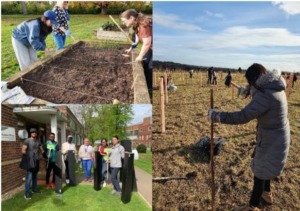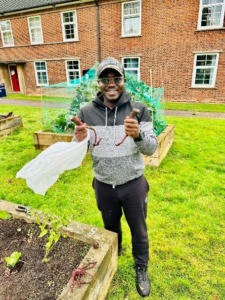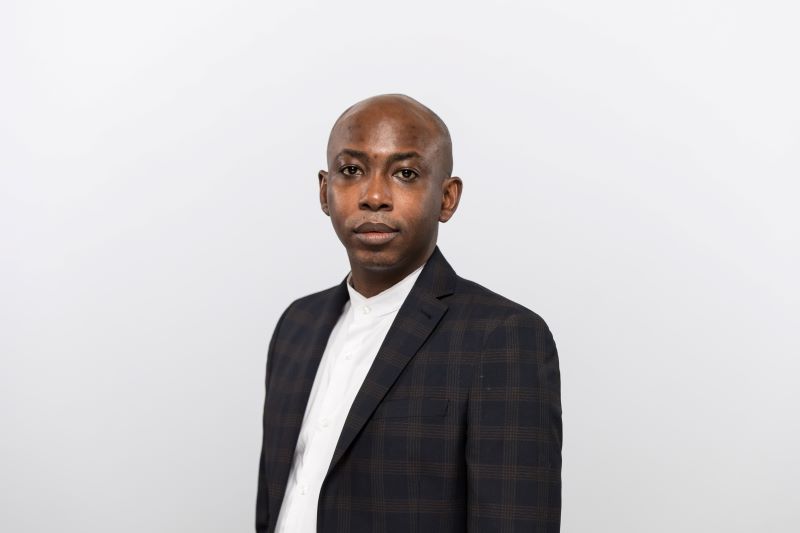A holistic approach to Sustainability at Cranfield University: A student’s point of view
08/11/2023

Unless you have been living under a rock, you must have come across a discussion on sustainability, especially in an academic environment like Cranfield University. As a PhD researcher conducting research under the Energy and Sustainability theme, this is quite a frequent conversation. In 1987, the United Nations Brundtland Commission defined sustainability as “meeting the needs of the present without compromising the ability of future generations to meet their own needs.” Sustainability is a complex multi-layered problem that requires a holistic multi-faceted approach.
Cranfield has set 2030 net zero targets that revolves around themes like reducing energy consumption, efficient waste management, increasing biodiversity, building capacity for more renewable energy sources and so on. From my perspective, I believe the University, and any other organisation serious about sustainability, should focus on four core areas: technical, management and policy, engagement, and research.
Technical
From the wider university perspective, I believe there needs to be a team/committee/working group that is directly responsible for the University’s net zero targets. I am happy that the University has a dedicated team in the Energy and Environment department headed by Gareth Ellis. I had the privilege of working with Gareth and his team while researching on solar energy forecasting and then again as a volunteer member of the Green Team. As part of my data collection, I was introduced to SystemsLink, a platform that collects and displays energy consumption and generation data across all utilities (water, gas, electricity) in the University. I was happy that the saying “you cannot manage what you cannot measure”, was central in the thinking of the team’s adoption of this software. I am glad to say “greening” of the University is in good hands as Gareth and his colleagues are passionate in delivering our sustainability goals. Having a technically sound team that clearly understands the challenges and solutions in achieving net zero is critical.

Management and policy
I think Cranfield University needs to be commended for setting a 2030 net zero target. However, the university management must not pay lip service, but be the central force in driving this mandate. The job of policy is to provide a favourable environment for the implementation of the right solutions at the right time. I believe this is achievable by working closely in tandem with the Energy and Environment Team, seriously taking on their recommendations, and providing the resources for their implementation. Once this has been provided, the university management is within its right to demand accountability and measure targets against resources expended.
Engagement
The problem of sustainability is a problem for everybody and not just management. If many of the energy end-users are ill-informed or uneducated about issues relating to net zero, then even the best technical efforts may fail. I believe the existence of initiatives like the Green Team and a similar platform for staff is crucial in creating meaningful engagement that leads to greater collaboration in the University. The Green Team has been active in planting trees, bee keeping, organising clothes swap shops and so on. In addition, the jobs of Green Ambassadors in educating the student body and turning off unnecessary and idling heating and light has a wider footprint than any team in the university. By being aware of the university’s policies on energy and waste, and directly being involved in sustainable measures, students and staff can take ownership and help achieve energy targets.


Research
Research helps to enhance current practices, discover new methods, and document successes and failures in contributing to our wider knowledge on any topic. A robust and pragmatic research programme gives researchers like us the freedom to work boldly. My research focuses on sustainably integrating solar energy into the traditional grid using an energy management system. This has been enhanced by the facilities and the industry partnerships Cranfield has. For instance, I was able to use the data from the 1.6 MW solar farm located in Cranfield’s airfield to design a solar energy forecasting model that will help inform end users better match their consumption with solar availability. This will increase solar energy penetration and use.
Currently, I am working on an important research piece sponsored by Honeywell related to direct load control. Direct load control is an energy management concept that involves remotely turning off sockets to save energy especially when they are not in use. I just concluded tests on campus in the Costa Café at the Vincent building and one of the laboratories in the Aerospace Integration Research Centre (AIRC) building. My findings will help provide vital information on energy patterns and inform the university on areas of potential energy saving. This would not have been possible without the support from my department and my research supervisors Dr. Liyun Lao and Dr. Da Huo, the team at Honeywell, and Gareth Ellis and Ceri Dawson from the Energy and Environment Team.
All these factors are important in making sure that we “walk the talk”. I have no doubt that the University has the capacity to reach its net zero targets and make sustainability a reality.
Categories & Tags:
Leave a comment on this post:
You might also like…
Introducing… Bloomberg Trade Flows
Are you interested in world trade flows? Would it be useful to know which nations are your country's major trading partners? If so, the Bloomberg terminal has a rather nifty function where you can view ...
Cranfield alumni voyage to the International Space Station
Seeing our alumni reach the International Space Station (ISS) has a ripple effect that extends far beyond the space sector. For school students questioning whether science is “for them”, for undergraduates weighing their next ...
From classroom to cockpit: What’s next after Cranfield
The Air Transport Management MSc isn’t just about learning theory — it’s about preparing for a career in the aviation industry. Adit shares his dream job, insights from classmates, and advice for prospective students. ...
Setting up a shared group folder in a reference manager
Many of our students are now busy working on their group projects. One easy way to share references amongst a group is to set up group folders in a reference manager like Mendeley or Zotero. ...
Company codes – CUSIP, SEDOL, ISIN…. What do they mean and how can you use them in our Library resources?
As you use our many finance resources, you will probably notice unique company identifiers which may be codes or symbols. It is worth spending some time getting to know what these are and which resources ...
Supporting careers in defence through specialist education
As a materials engineer by background, I have always been drawn to fields where technical expertise directly shapes real‑world outcomes. Few sectors exemplify this better than defence. Engineering careers in defence sit at the ...








Comments are closed.